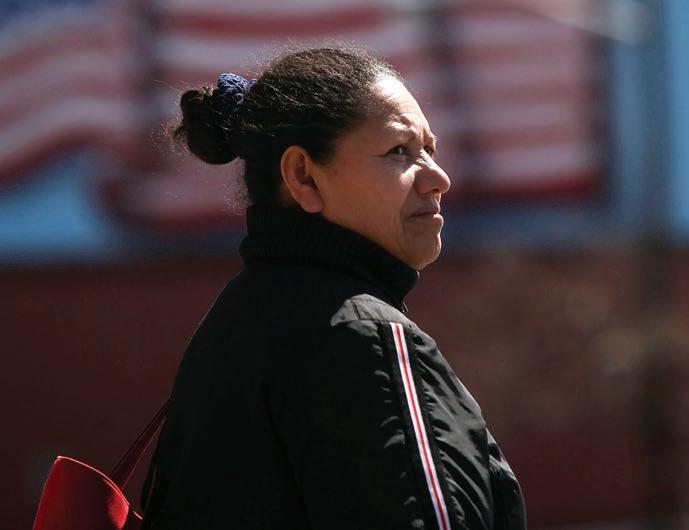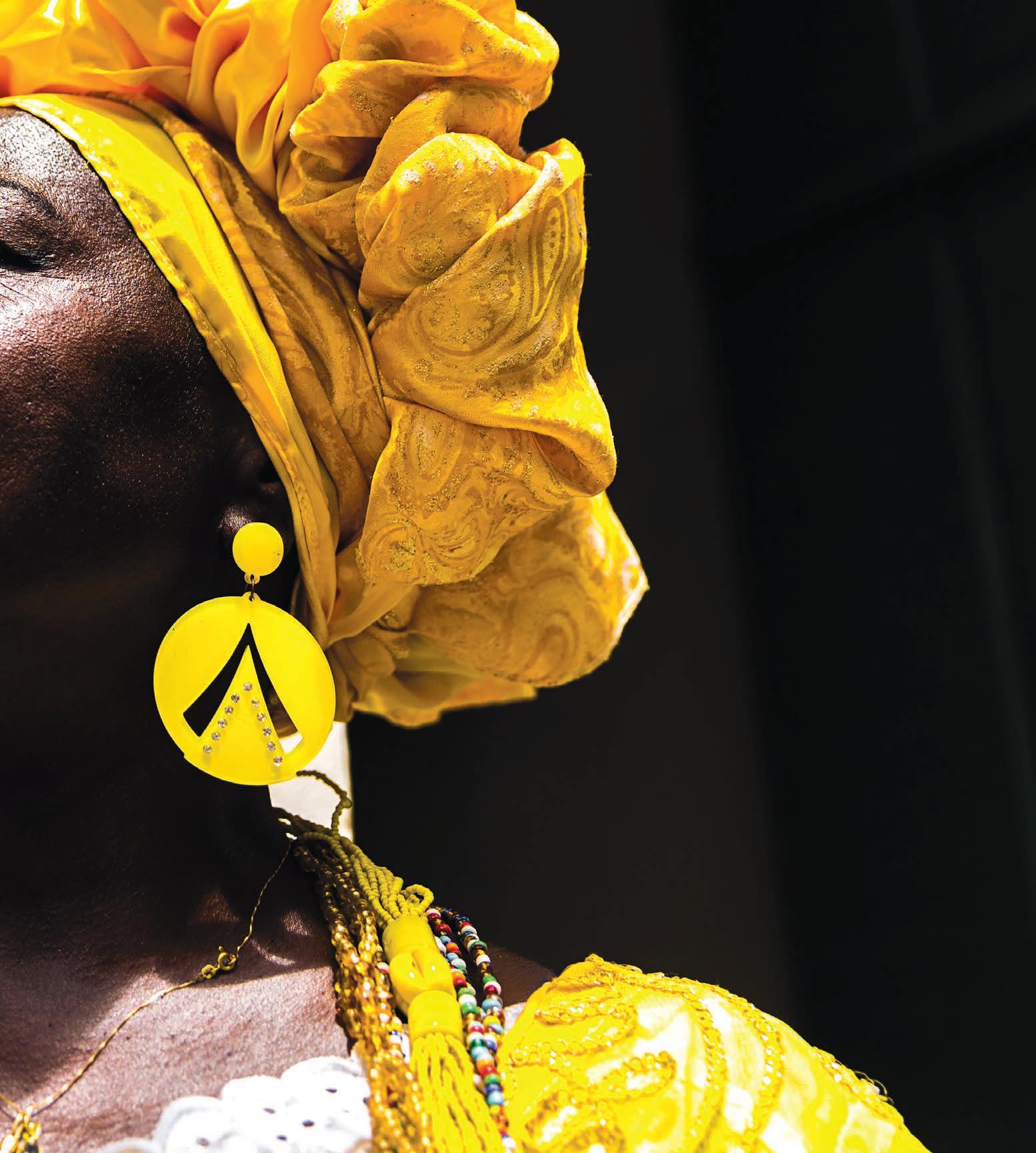
4 minute read
AL FRENTE UP FRONT
OPENING THE DIALOGUE IS ONLY THE BEGINNING OF THE RECOGNITION OF IDENTITY. BREAKING THE LATINX MONOLITH
ABRIR EL DIÁLOGO ES SÓLO EL PRINCIPIO PARA EL RECONOCIMIENTO DE LA IDENTIDAD.
Advertisement
A Hispanic woman walks down a street bearing a large painting of an American flag on March 28, 2011 in Union City, New Jersey. Photo by Spencer Platt/Getty Images
Una mujer hispana camina por una calle con una gran pintura de una bandera americana el 28 de marzo de 2011 en Union City, Nueva Jersey.. Foto de Spencer Platt/Getty Images
"E ven the most contradictory mixing can be resolved beneficially, as long as the spiritual factor contributes to lifting them up," wrote José Vasconcelos in the introduction to his work "La Raza Cósmica" (The Cosmic Race), a concept promoted by Mexican intellectuals at the beginning of the century and which advocated "a common destiny for humanity,” beyond races and colors.
This thesis, although modified by time, remains as valid as ever.
The eternal condemnation of the repetition of history has made us witnesses to the resurgence of divisive ideas — prejudices rooted in the collective unconscious of humanity which have returned with force to try to separate us into races with empty arguments and discrimiantion.
Hispanics today are not only one of the most vibrant populations, in number and representation, in the United States, but also
FEBRUARY 19 - 26, 2020 ENGLISH
one of the most misunderstood. Mixed races are not always understood at first sight.
The commonplace of the Latino seen exclusively as a foreigner who crosses a border is today an image that must be restructured at all costs. There are many of us Latinos, and we live our identity in a thousand different ways. This is our wealth. This Black History Month, AL DÍA honors one of those identities — perhaps the most misunderstood of all — and gives voice to the Afro-Latino community, in all of its complexity and in the context of the profound history to which it is heir.
They often taught us in school that Latin America was first founded by indigenous empires, which, once colonized, were introduced to the millions of enslaved Africans to form the trinity that lays the foundation of our identity today.
However, little is said about the diverse tones of the Caribbean, or the waves of immigrants who came one after another to take refuge in the arms of a continent unable to close its doors to those in need. Centuries later, to speak of Hispanos as a single tone not only borders on ignorance, but is an unforgivable mischaracterization.
Today, we give voice to those who have long deserved it and invite our readers to read the stories of those who live in first person Vasconcelos’s promise of a cosmic race.
THE EDITOR
“A ún los mestizajes más contradictorios pueden resolverse benéficamente, siempre que el factor espiritual contribuya a levantarlos”, escribía José Vasconcelos en la introducción a su obra “La Raza Cósmica”, un concepto impulsado por los intelectuales mexicanos a principios de siglo y que abogaba por “un destino común de la humanidad”, más allá de razas y colores. Esa tesis, aunque modificada por el tiempo, sigue siendo más vigente que nunca.
La eterna condena a la repetición de la historia nos ha hecho testigos del resurgir de ideas divisorias, de prejuicios enraizados en el inconsciente colectivo de la humanidad y que han vuelto con fuerza a intentar separarnos en razas, con el argumento baldío del prejuicio.
Los hispanos no sólo somos hoy en día una de las poblaciones más pujantes –en cantidad y en representación– en Estados Unidos, sino también la más incomprendida. Y es que las ESPAÑOL
mixturas no se entienden siempre a primera vista.
El lugar común del Latino visto exclusivamente como extranjero que cruza una frontera es hoy por hoy una imagen que debe reestructurarse a toda costa. Latinos somos muchos, y la identidad la vivimos de mil maneras diferentes. He ahí nuestra riqueza. Este mes de la Historia Negra, AL DIA homenajea una de esas identidades –quizás la más incomprendida de todas– y le da la palabra a la comunidad afrolatina, a su complejidad y a la profunda historia de la que es heredera.
En el colegio nos enseñan que América Latina estuvo fundada, primero, por imperios indígenas, quienes una vez colonizados fueron presentados a los millones de esclavos provenientes del África para formar la trinidad que sienta las bases de nuestra identidad actual. Sin embargo, poco se habla de los tonos diversos en la piel tostada del Caribe o de las oleadas inmigrantes que llegaron una tras otra a refugiarse en los brazos de un continente incapaz de cerrar sus puertas al más necesitado. Siglos después, hablar del Hispano como un solo tono no sólo raya en la ignorancia, sino que es una irresponsabilidad imperdonable.
Hoy damos voz a quien voz merece e invitamos a nuestros lectores a escuchar las historias de quienes viven en primera persona la promesa de Vasconcelos de ser una raza cósmica.
DEL EDITOR
Latinos somos muchos, y la identidad la vivimos de mil maneras diferentes. There are many of us Latinos, and we live our identity in a thousand di erent ways.

"My melanin doesn't make me any less Latina" "Mi melanina no me hace menos Latina" Vilma d. Peguero

GettyImages








